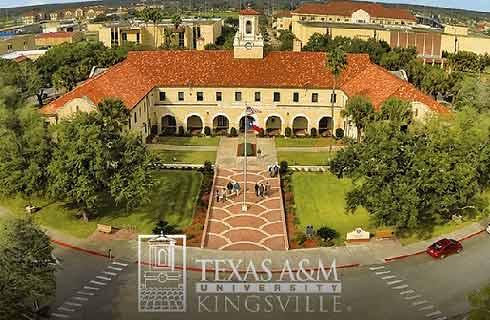可持续发展规划与环境政策(MSc)
Sustainability Planning and Environmental Policy (MSc)

学历文凭
Masters Degree (Taught)

专业院系

开学时间

课程时长

课程学费

国际学生入学条件
a 2:2 honours degree in a relevant subject area such as geography, sociology, politics, economics, or an equivalent international degree
a university-recognised equivalent academic qualification
an appropriate professional qualification in planning
or relevant professional experience evidenced by a reference. The reference must be provided by your employer to evidence that you currently work in an area relevant to the programme. This should be signed, dated and less than six months old at the time you submit your application.
A minimum standard in English language of IELTS 6.5(to include 5.5 in each sub-score) or equivalent will be required for students whose first language is not English. Pre-course English Language tuition is available.
TOEFL (iBT) - At least 90 with minimum scores of 17 for writing, 17 for listening, 18 for reading and 20 for speaking
International Baccalaureate Language A- HL 4 or SL 5
IDP—雅思考试联合主办方

雅思考试总分
6.5
- 雅思总分:6.5
- 托福网考总分:90
- 托福笔试总分:160
- 其他语言考试:Pearson Test of English - 62 with a minimum of 51 in all communicative skills
CRICOS代码:
申请截止日期: 请与IDP联系 以获取详细信息。
课程简介
Develop your knowledge and understanding of sustainability theory, principles and practice and be empowered to influence and progress policy and planning solutions for the environmental and sustainability challenges faced by government, business and regulatory bodies.<br> <br>Our MSc in Sustainability, Planning and Environmental Policy (accredited by RICS and partially accredited by the RTPI), addresses three key dimensions that will provide you with the skills and knowledge to contribute to future policy development and help tackle sensitive environmental and sustainability issues. We will consider:<br><br>Principles and process - asking how policies may, or may not, achieve more sustainable development.<br>Resource sector studies – comparative and in-depth analysis of sustainability issues in key economic sectors (including food, transport, renewable energy and housing).<br>Research training – helping you to develop sustainability-relevant research skills ideal for academic progression, and professional practice.<br>You'll benefit from teaching which links together theoretical debates about sustainability at different spatial scales, informed by the latest social science research around environmental problems, with the practical dimensions of policy formulation and implementation. The planning system is given particular attention because it provides one of the most sophisticated contemporary mechanisms for regulating environmental change.
相关申请
 预科
预科 奖学金
奖学金 实习机会
实习机会 在校学习
在校学习 跨境学习
跨境学习 校园授课-线上开始
校园授课-线上开始 在线/远程学习
在线/远程学习
开学时间&学费
学费信息仅供参考,请与IDP联系以获取详细信息
| 开学时间 | 时长 | 学费 | 地点 |
|---|
学校排名

世界排名187
数据源:
泰晤士高等教育世界大学排名
关于卡迪夫大学

卡迪夫大学是英国一所享有盛誉的大学,位于英国四大地区之一--威尔士的首府。作为威尔士唯一的罗素集团大学,卡迪夫大学以其世界一流的研究水平、卓越的学术成就和优异的毕业生成果而闻名。卡迪夫大学在英国排名第22名(2026年《完全大学指南》),在全球排名第181名(2026年《QS世界大学排名》),提供国际认可的学位课程和支持性的学习环境。每年,卡迪夫大学都会迎来来自138个国家的6300多名国际学生,营造出一个多元化、包容的社区。卡迪夫大学高度重视就业能力,85%的国际毕业生在完成学业后不久就能找到高技能工作(2022/23年度毕业生成果报告)。卡迪夫大学在研究卓越性方面排名全英第14位,研究影响力方面排名第11位(2021年研究卓越框架),这体现了该校对创新型、面向现实世界研究的承诺。大学已投资6亿英镑用于新设施,包括最先进的教学空间、实验室和学习中心。卡迪夫大学的学生生活评价很高,连续三年在学生生活方面排名全英第二,学生会组织也位列全英第二(2025年WhatUni学生选择奖)。卡迪夫大学拥有200多个学生社团、60个体育俱乐部以及定期举办的国际学生活动,为国际学生提供了无限的参与机会。符合录取条件的国际学生将获得大学宿舍的单人住宿,且宿舍距离校园仅几步之遥。
本校相关课程

威尔士历史(MA)
学历文凭
Masters Degree (Taught)
开学日期
课程费用总额


政治与国际关系博士/硕士-威尔士
学历文凭
Ph.D.
开学日期
课程费用总额


城市设计(MA)
学历文凭
Masters Degree (Taught)
开学日期
课程费用总额


运输与规划(MSc)
学历文凭
Masters Degree (Taught)
开学日期
课程费用总额


组织工程学(MSC)
学历文凭
Masters Degree (Taught)
开学日期
课程费用总额


化学博士学位/哲学硕士-理论与计算化学
学历文凭
Ph.D.
开学日期
课程费用总额

其他相关课程

Environmental Pollution and Management PhD
 布莱顿大学
布莱顿大学泰晤士高等教育世界大学排名:755
学历文凭
Ph.D.
开学日期
课程费用总额


环境与商业(荣誉)文学士学位
 利兹大学
利兹大学泰晤士高等教育世界大学排名:118
学历文凭
Bachelor Degree with Honours
开学日期
课程费用总额


哲学博士(可持续资源管理)
 纽卡斯尔大学
纽卡斯尔大学学历文凭
Ph.D.
开学日期
课程费用总额


MSc Environmental Sustainability
 爱丁堡龙比亚大学
爱丁堡龙比亚大学泰晤士高等教育世界大学排名:645
学历文凭
Masters Degree (Taught)
开学日期
课程费用总额


野生动物科学学士学位(荣誉学位)
 昆士兰大学
昆士兰大学泰晤士高等教育世界大学排名:80
学历文凭
Bachelor Degree with Honours
开学日期
课程费用总额


理学硕士淡水环境综合管理
 伦敦玛丽女王大学
伦敦玛丽女王大学泰晤士高等教育世界大学排名:135
学历文凭
Masters Degree (Taught)
开学日期
课程费用总额










